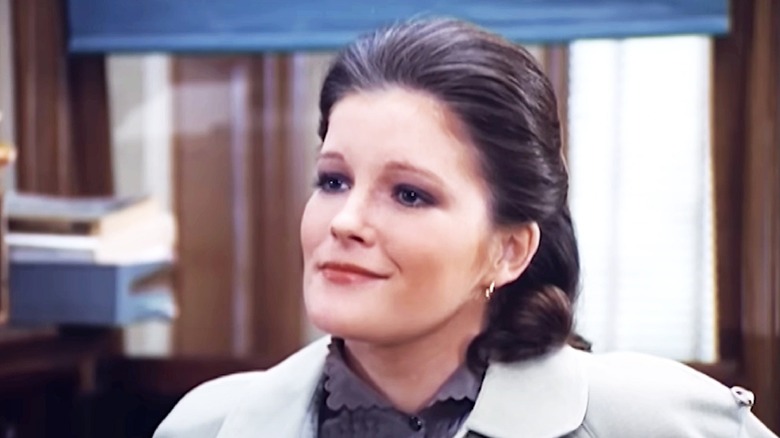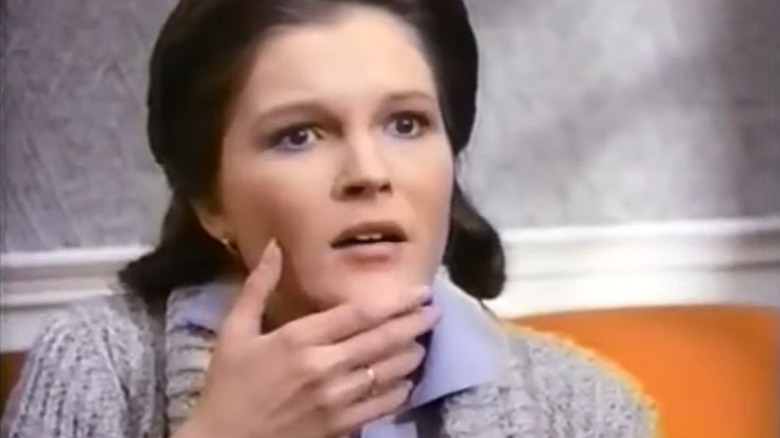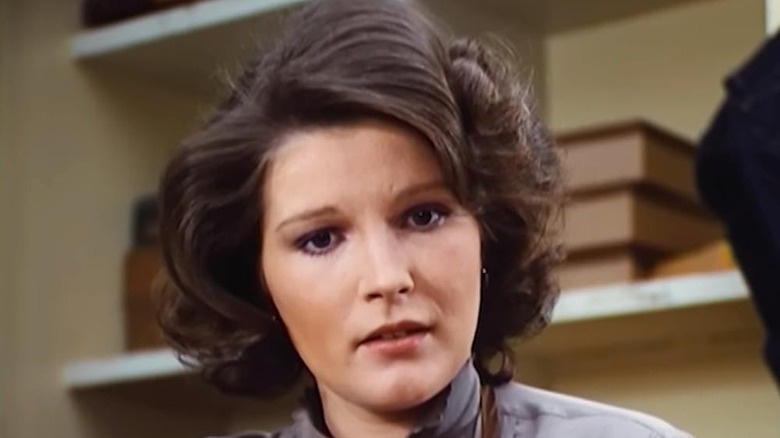The Columbo Spin-Off That Slowly Phased Him Out Of Existence
For a long time, you could tell just how successful a TV show was based on the number of spin-offs it inspired. That concept is as true now as it was decades ago, what with the vast amount of "NCIS" and Dick Wolf spin-offs that litter the network airways year after year. But while spin-offs can be an easy sign of whether or not a series is popular, the spin-offs themselves aren't always successful, even when it comes to procedurals like cop dramas and mysteries. Indeed, just because viewers will always flock to crime dramas doesn't mean that every one of those shows is guaranteed to be a hit. If you need an example, simply look at the short-lived spin-off of one of the most beloved TV series of all time.
One of the all-time great mystery TV shows, "Columbo" transformed Peter Falk from an immensely talented actor into an immensely talented actor and worldwide star. "Columbo" was brilliant as a TV series for many reasons, not least of which was how it upended the traditional whodunit sub-genre of crime drama. Here, while the show itself focused on a preternaturally intelligent detective in the Los Angeles Police Department and his ability to figure out who had killed someone else, the structure of the series was a "howcatchem" in which the audience always knew whodunit in the first 15 minutes. But although "Columbo" was a massive hit in the Nielsen ratings, the spin-off it inspired, "Mrs. Columbo," was enough of a flop that it tried to phase Columbo himself out of its existence.
Mrs. Columbo introduced Columbo's never-seen wife
The one consistent aspect of "Columbo" was the man himself, as he would wear a rumpled raincoat and stumble through a given crime scene as a way to throw off his eventual quarry. Falk was in every episode, but the only other details that would echo across multiple episodes were things Columbo mentioned to his various suspects. Beyond that, Columbo kind of kept to himself; "Columbo" the show was not the type of program to give its audience a great deal of personal information about the character. Although eagle-eyed viewers may have noted that his first name was Frank due to a well-placed glimpse of his police badge, Columbo was never even referred to by his first name. And while Columbo would often invoke his wife, we never knew her name or met her within the confines of any episode of "Columbo."
That changed with "Mrs. Columbo," which introduced us not only to Kate Columbo (Kate Mulgrew) but also the Columbos' daughter Jenny (Lili Haydn). Kate is a news reporter who raises her daughter while also solving crimes in her off-duty time. The show premiered in February of 1979, which was, interestingly enough, just a few months after "Columbo" stopped airing new episodes on NBC. (Although "Columbo" was revived at the end of the 1980s and aired new episodes through to 2003, it did so on ABC.) If the spin-off's premise seems a little shaky to you, know that you're not alone in feeling that way. In fact, the creators of "Columbo," writers Richard Levinson and William Link, felt the same way.
As it were, Levinson and Link had been vociferously been against the spin-off (as well as the casting of a then-24-year old Mulgrew to play the wife of Columbo, who would have been 52 when the show began). Nevertheless, NBC executives chose to proceed forward. Levinson and Link had the right notion, though: The mid-season replacement aired just five very low-rated episodes in the spring of 1979. So, when it came back that fall, Kate no longer called herself Mrs. Columbo and instead used her apparent maiden name of Callahan. Meanwhile, the show itself was renamed twice, starting with "Kate the Detective" and then "Kate Loves a Mystery." It's no shock that the series only lasted eight more episodes (totaling 13 in all) before swiftly vanishing from the airwaves.
Mrs. Columbo's failure is a reminder of the pitfalls of spin-offs
For every successful spin-off like "Frasier," there are 10 of them like "Mrs. Columbo." When, for example, "Frasier" was spun off from the 11-season comedy smash "Cheers," it was a risk, but the Boston-set sitcom had at least created so many memorable characters that spinning "Cheers" off made sense. There wasn't going to be any sense of the new show abandoning what the old series had done, much less what had made it so special.
Spinning off "Columbo," on the other hand, made no sense aside from '70s-era executives wanting to utilize a famous intellectual property after it had stopped making new episodes. "Columbo" was not a show with a rich or vast ensemble; the title implied what was obvious, that this was essentially a one-man series. Falk wasn't, to be fair, the only special part of the old-school procedural; the setup was also distinctive, and the amount of guest stars was genuinely impressive. (The directors could be, too; one early episode was helmed by a young Steven Spielberg.) But audiences did thrill to Lt. Columbo himself, so making a spin-off about an unseen character was, at best, a calculated gamble.
At worst, the result is what we got with "Mrs. Columbo." It's a show so unwilling to stand by its initial premise that it not only renamed its heroine, but it also pretended as if Columbo had never existed in Kate's past. "Mrs. Columbo" itself sounds, honestly, like a parody title of a bad TV spin-off, so the fact it actually existed — and attempted to memory-hole Columbo no less — is as wild as it is laughable. Columbo himself, as mentioned earlier, would eventually get another crack at things with the ABC revival years later, ensuring that audiences would more or less memory-hole "Mrs. Columbo" in return.


